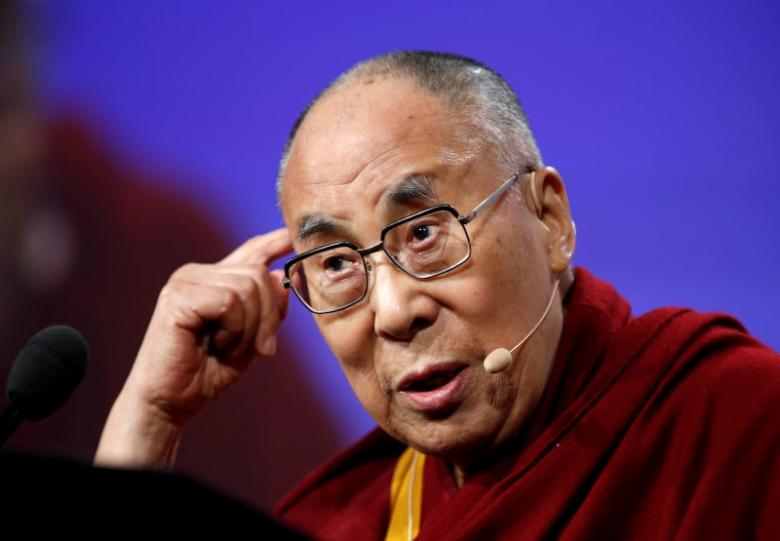
The Dalai Lama speaks on “the global significance of building compassionate cities” at the U.S. Conference of Mayors 84th Annual Meeting in Indianapolis, Indiana United States, June 26, 2016. REUTERS/Chris Bergin
China’s newly appointed Communist Party chief of Tibet called for stronger denunciations of exiled spiritual leader the Dalai Lama, state media said on Thursday, signaling Beijing’s hardline is unlikely to change under his leadership.
China on Sunday named Wu Yingjie as Tibet’s next party secretary, the region’s top official, considered one of the country’s most politically sensitive positions due to periodic anti-Chinese unrest in the devoutly Buddhist Himalayan region.
Communist troops marched in and took control of Tibet in 1950 in what Beijing calls a “peaceful liberation”. Tibetan spiritual leader the Dalai Lama fled to India in 1959 following a failed uprising against the Chinese.
In excerpts of a speech carried on Thursday by the official Tibet Daily, Wu said, without elaborating, that the government must “deepen its exposure and criticism of the Dalai Lama”.
Representatives of the Nobel Peace laureate held rounds of talks with China until 2010, but formal dialogue has stalled amid leadership changes in Beijing and a crackdown in Tibet.
Beijing denounces the Dalai Lama as a dangerous separatist who wants an independent Tibet. He denies espousing violence and says he only wants genuine autonomy for his Himalayan homeland.
Wu added that freedom of religion must be followed, but that there must be “positive guidance on Tibetan Buddhism and socialism adapting themselves to each other” so as to promote religious harmony.
China says its rule has bought prosperity and stability, rejecting claims from Tibetan exiles and rights groups of widespread repression.
(Reporting by Ben Blanchard; Editing by Simon Cameron-Moore)




 Print
Print Email
Email